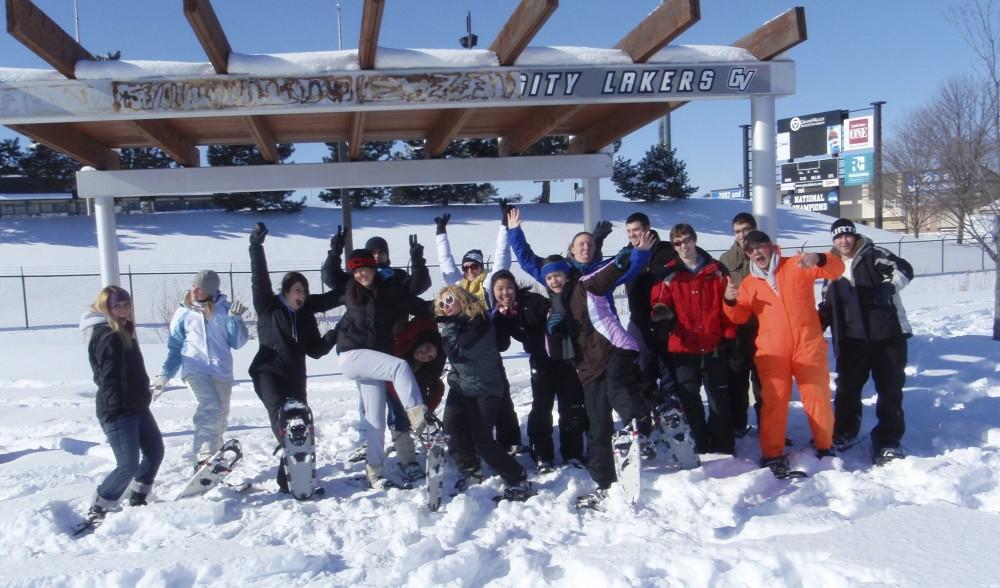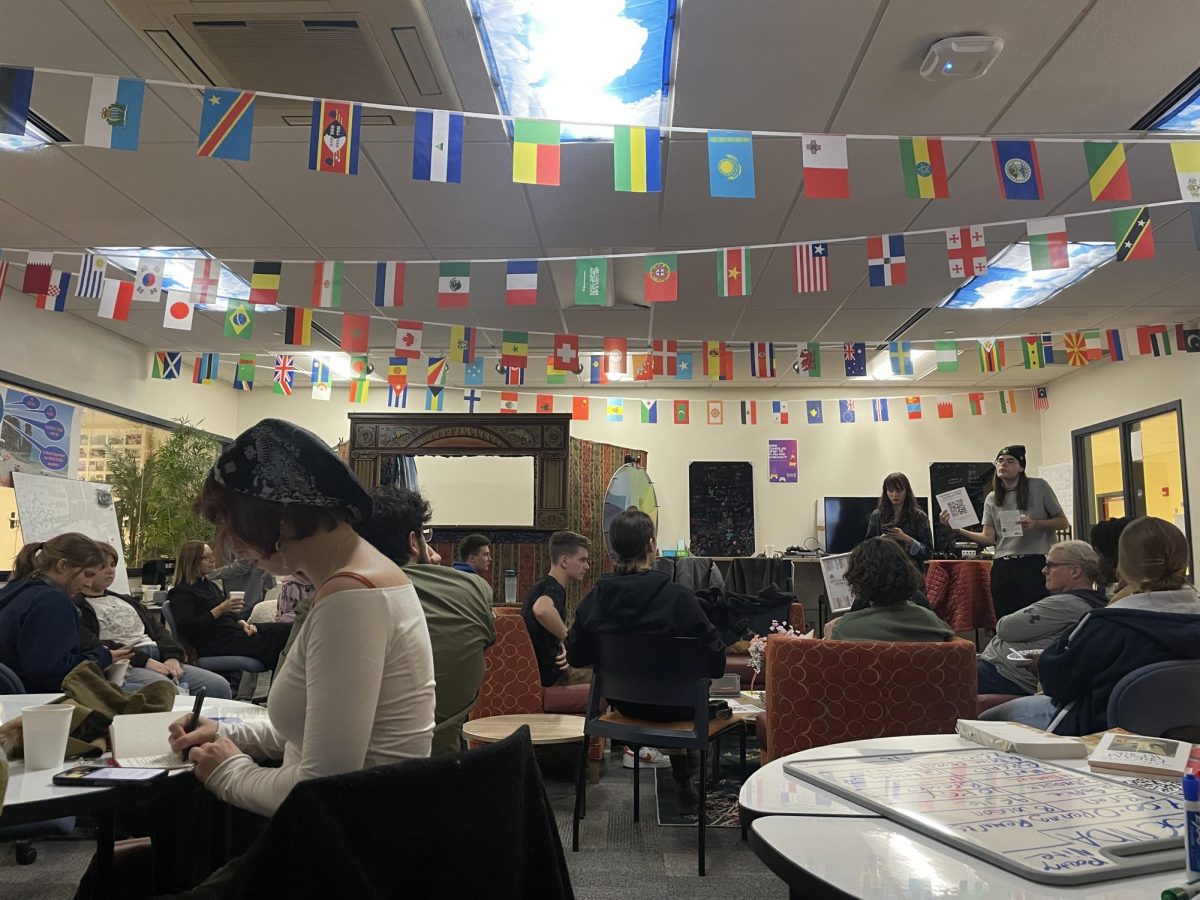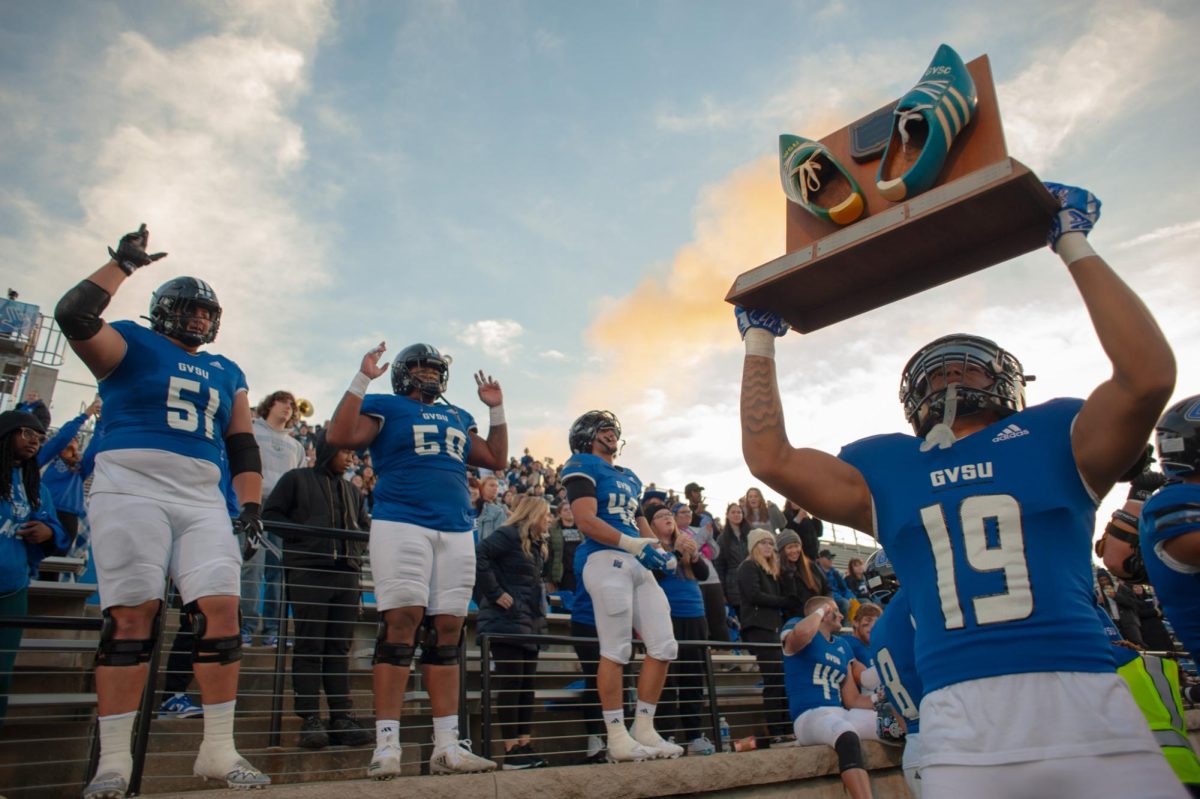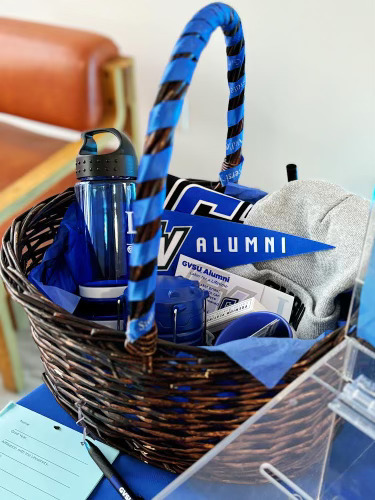Adventure Tourism Management

Courtesy Photo / Robert Robins Students in HTM 268 Adventure Tourism class enjoy a variety of activities
Sep 16, 2010
Students seeking an escape from the monotony of lecture-based learning can take solace in the new Adventure Tourism Management minor. Introduced by Grand Valley State University this fall, the minor equips students with a diverse set of skills that its creators believe will serve enrollees well in the changing economic climate.
“What we’re seeing in Michigan is a big shift from the sort of industrial economies to the service economies,” said Paul Stansbie, department chair of hospitality and tourism management. “We’ve been very much involved with the Michigan Economic Development Corporation and the Pure Michigan campaign, which many people have seen as recognizing the natural wonders that Michigan has to offer.”
Drawing its diverse emphasis from an interdisciplinary foundation, the minor mandates students complete a core of 14 credits from the hospitality, natural resource management and physical education disciplines. In addition, the required seven electives allow students to mix and match skills from courses based in hospitality, management, movement science and natural resource management.
“It was put together as a collaborative effort and as an interdisciplinary effort to make sure that it gave a broad-based platform to build from and that this wasn’t just a HTM focused minor,” said professor Robert Robins, one of the program’s advisers. “That anyone from other disciplines that has any interest in sustainability, any interest in natural resources and adventure-type activities.”
The program’s diversity is matched only by its emphasis on practical application. To that end, Robins said classes like Adventure Tourism (HTM 268) are popular with students because of the experiential aspect absent in other disciplines.
“By coming into the Adventure Tourism class and being able to participate in the activities and also the requirements of some of the movement science classes where they can engage in specific activities for deeper learning and understanding and experience in those activities – the sailing, the kayaking, the snowshoeing – that are offered through movement sciences, I think it gives them a really solid, broad-based exposure both in theory and practice,” Robins explained.
Still, Stansbie maintained that courses such as Adventure Tourism are more about the learning experience and less about the actual activities, which include rock-climbing, scuba diving and geocaching.
“We’re not trying to make them certified paddy divers in the scuba tanks,” Stansbie said. “What it gives them is this – you’re taking a group of travelers on this kind of experience, what are some of the things you’ve got to be aware of in terms of team dynamics, group cohesion, safety, security, risk assessment, crisis management and all those kinds of concepts that form part of an entrepreneurial adventure travel.”
Adding to the importance of application for the minor is the encouragement for enrollees to choose at least one field experience course or related internship.
Hospitality senior Adam Merrill stressed the value of internships and applicable experience for his fellow students, particularly those nearing graduation.
“The global economy is shifting from manufacturing to a service-oriented economy in which the jobs cannot be outsourced because they are experience based,” said Merrill, who is completing his fourth internship.
Robins anticipated quick enrollment growth in the near future.
“Obviously we’re making it known that the minor is now available, and I’ve had a number of students in my ecotourism and adventure tourism class express interest,” she said. “I think we’ll see a lot of interest early on and then hopefully be able to continue to build on that as more and more students become aware of the minor being offered.”
Students interested in enrolling should contact hospitality and tourism management advisers to develop plans specific to their needs.























